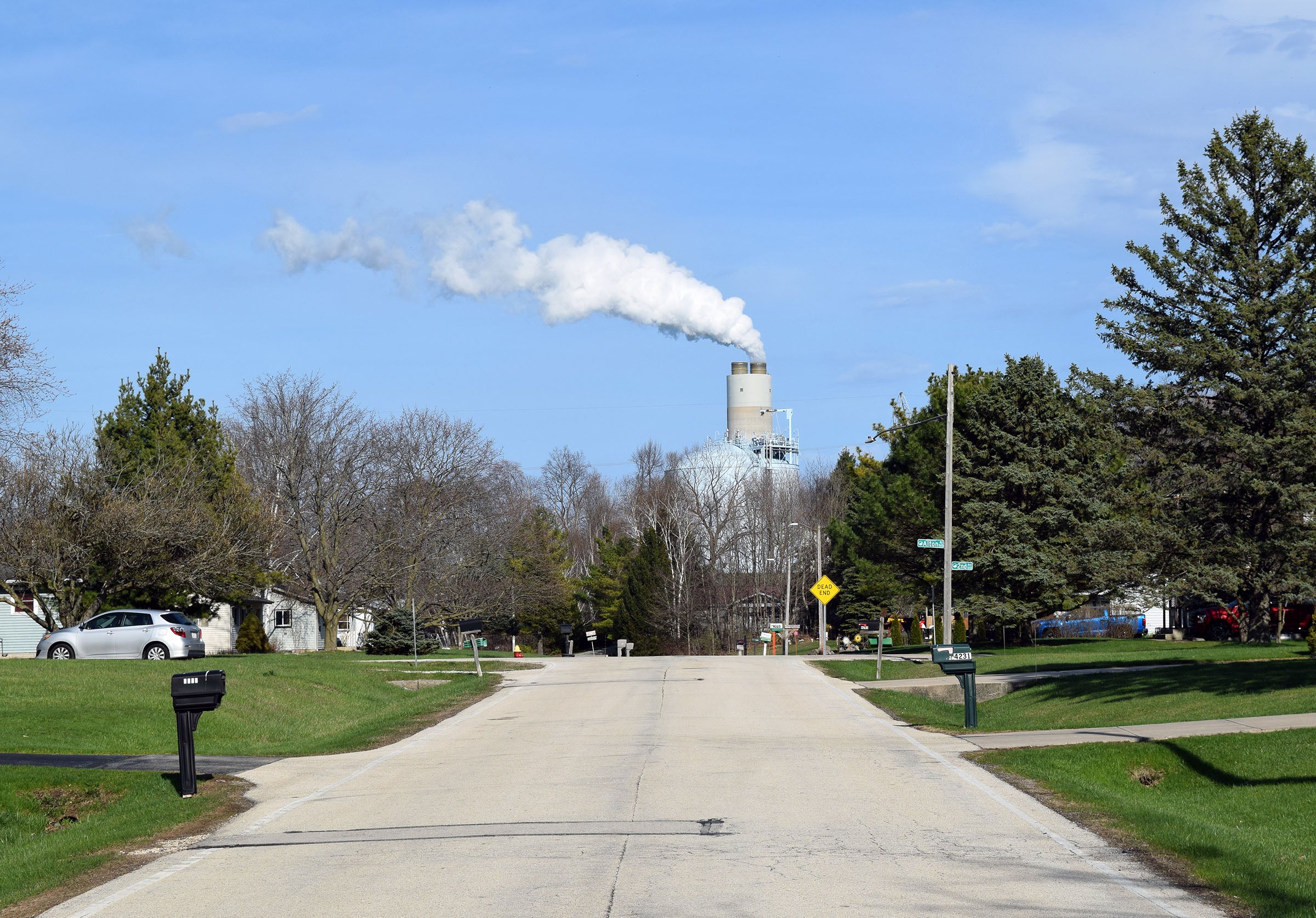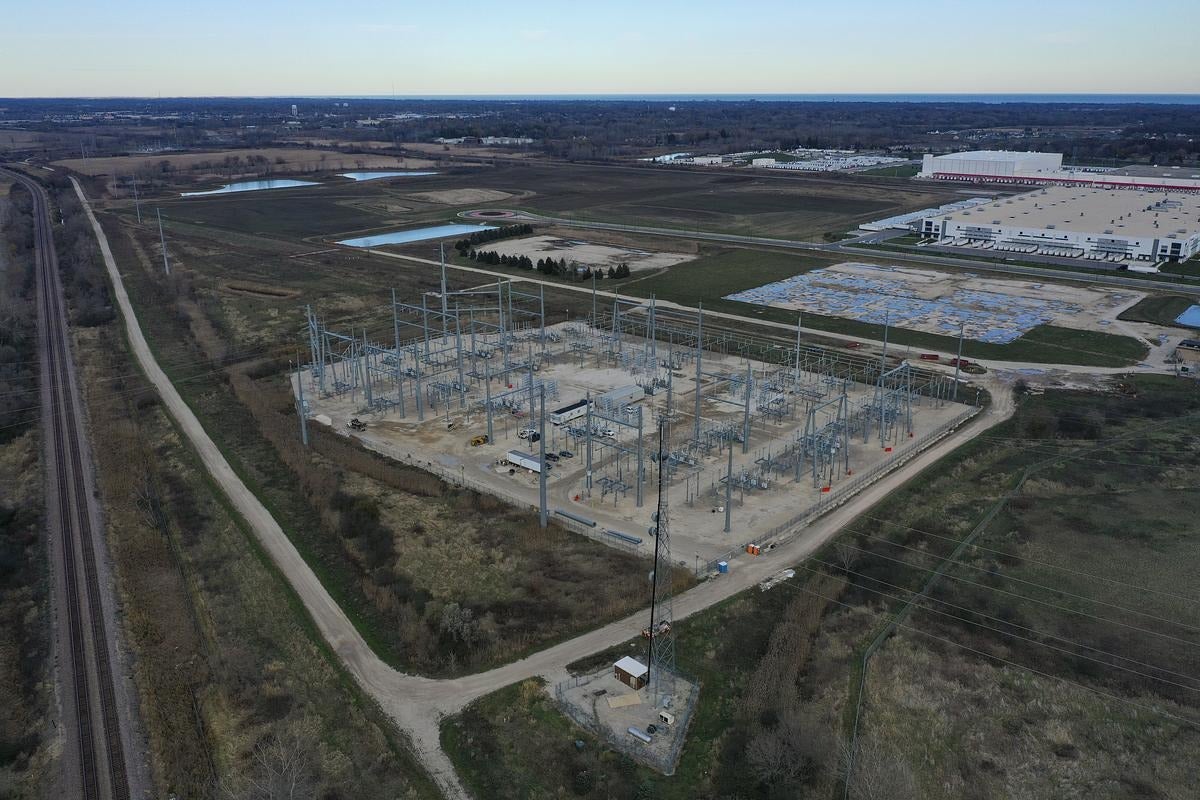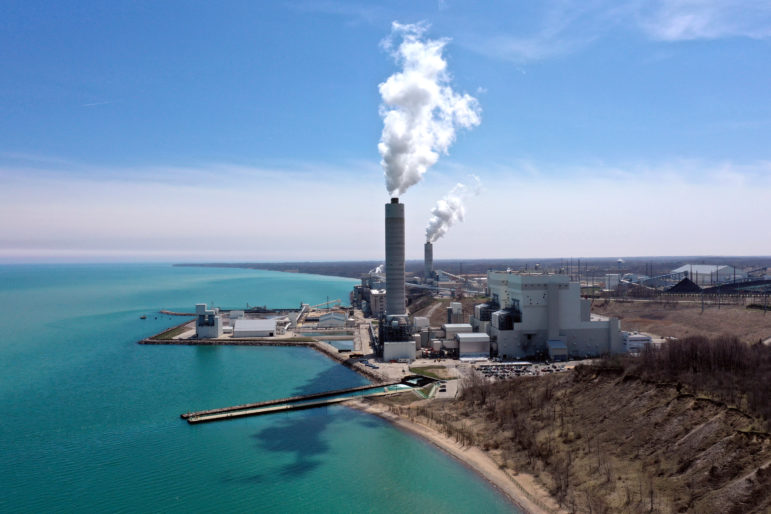Wisconsin environmental and health advocates are denouncing plans by the Environmental Protection Agency to repeal rules that limit heat-trapping greenhouse gas emissions from power plants that contribute to climate change.
The EPA recently proposed rules to repeal the Biden-era regulations and weaken standards aimed at reducing emissions of mercury and other toxic pollutants.
EPA Administrator Lee Zeldin said the move would save the power sector $19 billion over two decades and more than $1 billion each year for Americans. It’s part of the Trump administration’s effort to make good on its promise to “unleash American energy” and orders that keep coal plants online.
In May, the Department of Energy ordered two fossil fuel plants in Michigan and Pennsylvania to continue operating to avoid any “generation shortfall” despite their plans to retire this month.
Cassie Steiner, senior campaign coordinator for Sierra Club Wisconsin, said the EPA’s proposal is concerning as Wisconsin has been seeing more severe storms, tornadoes and unhealthy air due to smoke from wildfires that are driven by climate change.
“We’re experiencing the impact of climate change already in Wisconsin and rolling back greenhouse gas emission standards is not going to make the problem better. It’s going to make it worse,” Steiner said.

EPA data shows power plants are the second-largest source of greenhouse gas emissions next to the transportation sector.
In Wisconsin, most recent federal data shows coal made up 32 percent of the state’s power mix in 2023, while natural gas accounted for 43 percent. Around 34 percent of the state’s 90.6 million tons of carbon emissions come from burning fuels to produce electricity. That’s equal to the emissions of more than 21 million gas-powered vehicles on the road each year.
We Energies and Alliant Energy have announced plans to retire coal units in Oak Creek, Sheboygan and Columbia County as they shift to wind and solar. Both said they have not been contacted by the Trump administration about their coal operations.
We Energies, the state’s largest utility, retired two coal units at its Oak Creek plant and two more are expected to shut down this year. In a statement, utility spokesperson Brendan Conway said it’s reviewing what impact, if any, the EPA announcement may have on its operations.
“Our customers count on us to deliver reliable energy, 24 hours a day, 365 days a year. We will continue to work with federal and state stakeholders on our ‘all of the above’ approach to keep energy flowing to our customers,” Conway wrote.
News with a little more humanity
WPR’s “Wisconsin Today” newsletter keeps you connected to the state you love without feeling overwhelmed. No paywall. No agenda. No corporate filter.

Ciaran Gallagher, energy and air manager for Clean Wisconsin, said rolling back greenhouse gas standards likely wouldn’t have an impact on Wisconsin coal plants. Utilities have announced plans to retire them prior to the Biden-era regulation’s requirement to cut pollution 90 percent by 2039.
“I will note that those retirement dates are not binding. They are set by the utilities. They are voluntary, and we’ve seen them push those retirements back multiple times,” Gallagher said.
We Energies and Alliant Energy have previously delayed plans amid growing energy demand driven largely by data centers and concerns about reliability of the electric grid.
Alliant Energy had planned to shut down its Edgewater plant in Sheboygan this year, but it’s using coal until 2028 as it converts the facility to natural gas. The utility also delayed retirement of the Columbia Energy Center near Portage until 2029.
Alliant spokesperson Morgan Hawk said in a statement it’s still reviewing the EPA’s proposed rules.
“We anticipate no immediate impacts on our strategic plans and compliance with all existing air permitting or other regulatory requirements should continue going forward,” Hawk wrote.

Even so, environmental and health advocates note utilities are increasingly investing in gas-fired plants in Wisconsin. We Energies recently received approval to spend about $1.5 billion on natural gas plants in the city of Oak Creek in Milwaukee County and the town of Paris in Kenosha County. It also plans to convert its Elm Road coal plant to natural gas as part of plans to drop coal by 2032.
While not as dirty as coal, methane emissions from natural gas have 80 times more warming potential than carbon dioxide over a 20-year span.
Dr. Joel Charles, family medicine physician and co-founder of Healthy Climate Wisconsin, fears rolling back standards will allow longer operation of coal plants and more gas facilities, harming public health.
“For my patients, that means my farmers, who spend most of their time out in the field, they’re vulnerable to heat waves. They’re vulnerable to the smoke we’ve seen in the last few weeks. They are vulnerable to Lyme disease from ticks. They’re being flooded out of their homes,” Charles said.
A 2020 report by researchers at the University of Wisconsin-Madison and Healthy Climate Wisconsin found the state could save $21 billion in avoided health costs and avoid around 1,900 premature deaths by switching to clean energy.
The Biden administration estimated its regulations would bring up to $370 billion in climate and public health benefits over the next two decades.
The EPA is accepting comments on its proposal and plans to issue a final rule by the end of this year.
Wisconsin Public Radio, © Copyright 2026, Board of Regents of the University of Wisconsin System and Wisconsin Educational Communications Board.






